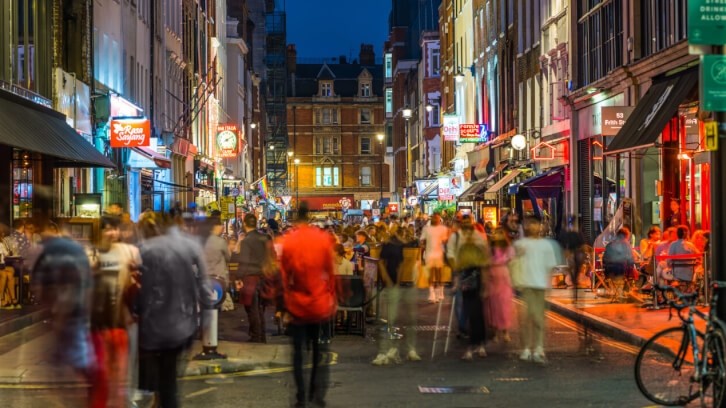LICENSING HUB - LEGAL WITH POPPLESTON ALLEN
Licensing authorities and how they hold the key to saving the hospitality sector

This year has seen a significant reduction in the number of licensed premises across the UK, and this trend raises several questions about the future of the sector. The biggest question is what can we, and more importantly in my opinion, the licensing authorities, do about it.
Hospitality businesses are the backbone of every city, town and high street across the country. From the late-night bars and restaurants to the local village pub, each premises is a vital cog in the machine that forms our licensed sector. Since Covid, however, the landscape has changed dramatically. The recent numbers evidence the fact that operators are finding it increasingly difficult to stay afloat and the closing down of premises is at an all-time high. Couple this with the cost-of-living crisis and changing customer demands and the horizon can appear bleak.
I could easily wax lyrical about how this problem could be solved through VAT reductions and duty cuts, however I will leave that opinion to those better versed and I intend to look at this from a slightly different angle.
Licensing authorities across England and Wales are required, every five years, to publish a Statement of Licensing Policy. This policy sets out the authority’s principles it applies when carrying out their duties under the Licensing Act, detailing how premises should operate and provides a framework for the authority to work from when they receive a premises licence application. In layman’s terms, the Statement of Licensing Policy is the authority’s licensing bible.
Conflicting ideas
In addition to this, licensing authorities may also publish a cumulative impact assessment (CIA) alongside their policy. This assessment allows an authority to designate an area within their borough as a cumulative impact zone (CIZ), where the authority believe the concentration of licensed venues is so high that any new venues will negatively impact the licensing objectives. Currently, there are over 200 CIZ’s across England and Wales.
The purpose of CIA’s is a reasonable one (and must be evidenced based), but whether they are being used effectively is a topic for debate. Further, the lack of cohesion between the licensing and planning regimes provides consistent frustration to operators, with policies providing conflicting ideas on what their local area needs.
Licensing authorities, in the drafting of their policies have the freedom to outline their outlook on their area according to their wishes. The legislation only provides that a licensing authority has a policy in place and leaves the content of the policy down to the authority themselves, resulting in a plethora of differing outlooks and attitudes towards the licensed trade.
Licensing policies are a key tool that can be used to support the trade, especially in this time of severe economic difficulty. I have read a number of licensing policies from heavily populated London boroughs to smaller localised towns, and the majority share the same unfortunate theme – they are overly restrictive, and rarely permissive.
The Licensing Act is designed as a permissive piece of legislation, providing an open framework for budding operators to follow when starting on their hospitality journey. Excessive use of CIAs works in complete contrast to this and provides an obstacle to many excellent operators. Further, many authorities are setting ‘framework hours’ for different types of premises within their policy, an additional restriction which has no legislative backing.
Sector impact
The impact of CIZ’s on the country’s hospitality sector is clear to see when one understands the locations. Take Soho, the historic epicentre of culture and nightlife in London. Since Westminster’s introduction of their CIZ for this area, paired with a coherently drafted licensing policy and well-versed local resident’s associations, a Saturday night in this once famous area is all but over by midnight. Has the balance tipped too far in residents’ favour? An area once synonymous with colour and life at all hours is now a shadow of its former self. A coral reef now bleached with regulation and restriction.
Because of this, we have seen other areas of the capital becoming the new ‘night out’ hotspots. Shoreditch, Dalston, Peckham – all areas on the outskirts of traditional ‘central’ London, now being the only places where operators can obtain licences free of onerous restrictions and with hours that work for them and their customers desires. These areas now, however, are all covered with CIZs.
This continual cat and mouse game between operators and authorities is counterproductive and creates an environment that lacks real thought and opinion as to what a borough, and most importantly its communities, wants and needs. Licensed premises have traditionally been at the heart of local communities, contributing not only to the social fabric but also to the local economy. Without them, the whole societal ecosystem falls apart.
One of the key reasons for the introduction of the Licensing Act was to informalise the licensing process and devolve decision making to those who know their borough and its needs the best – local councillors. The overly heavy and restrictive use of Licensing Policies and CIZ’s provides operators with an unnecessarily strict and difficult hurdle to overcome when looking to start or expand their business.
My issue here is not with the use of CIZs per se, but the use of them unnecessarily. The hospitality industry is on its knees and need help and support from everyone they can muster it from. This includes their local licensing authority. A policy that incentivises operators to apply will encourage the resurgence of the high street and in turn result in a thriving and exciting night-time economy.
The biggest takeaway from the pandemic period is that fundamentally we are social beings. Licensed premises play a crucial role in facilitating this basic human need, and without a realistic and practical approach to licensing we run the risk of losing more of the venues we all know and love.
- Felix Faulkner is a solicitor at Poppleston Allen.







